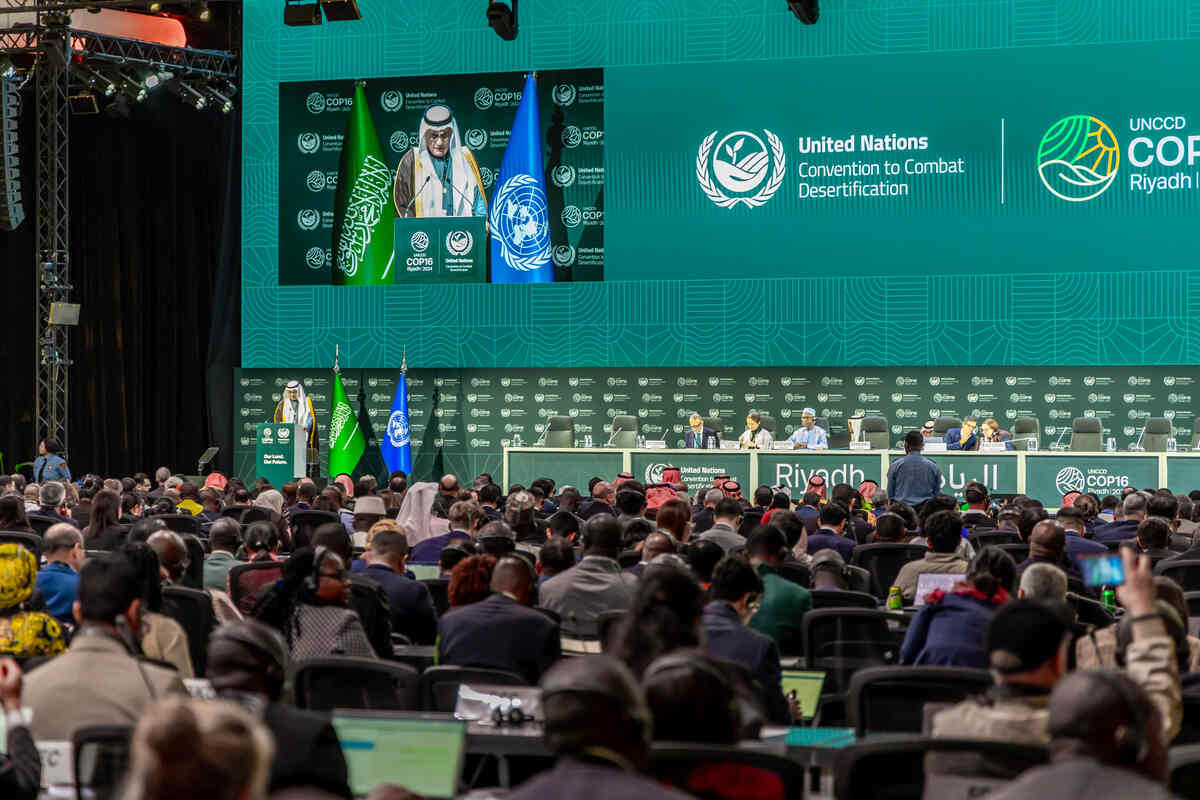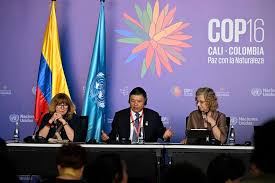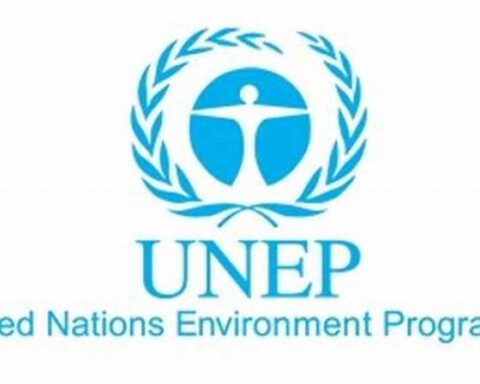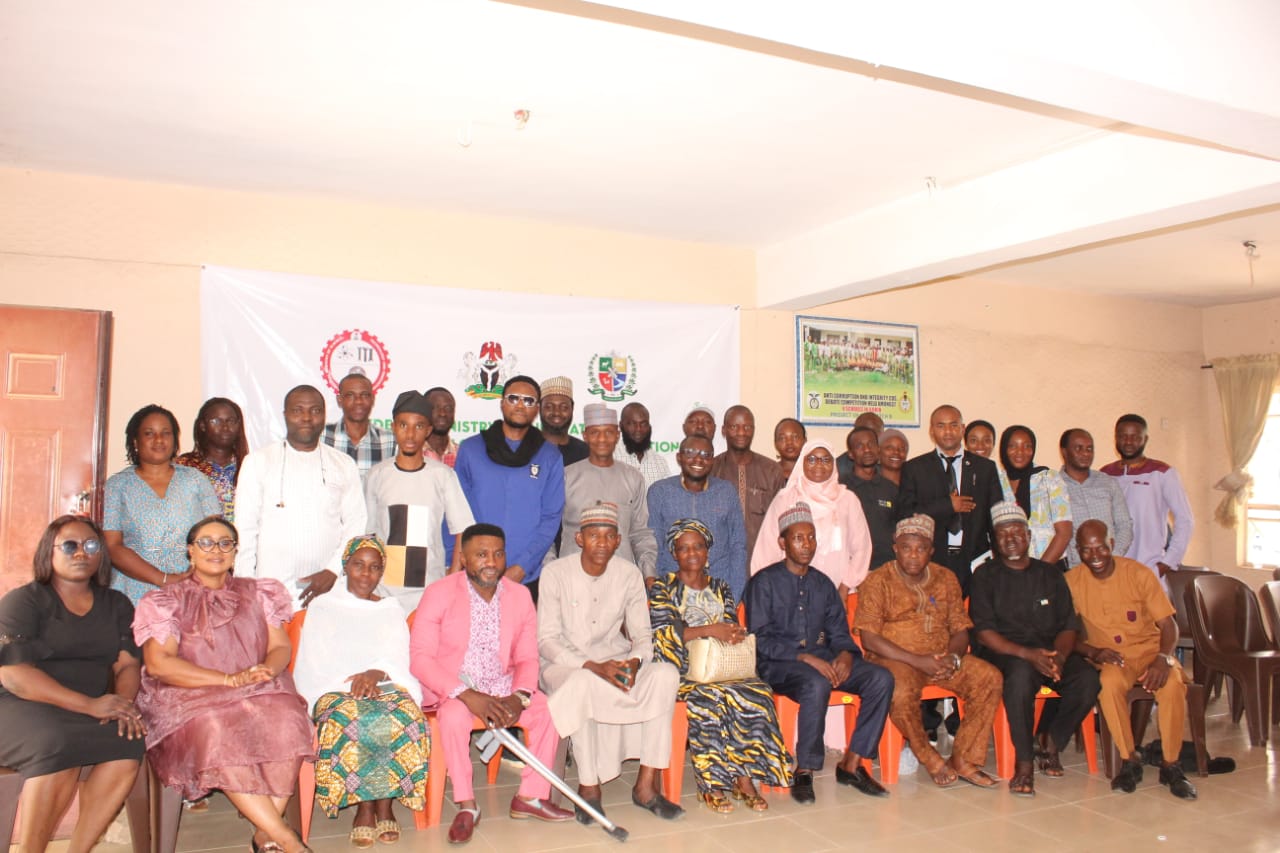The 16th Conference of the Parties (COP16) to the United Nations Convention to Combat Desertification (UNCCD) has concluded in Riyadh, Saudi Arabia. Nearly 200 countries committed to prioritizing land restoration and drought resilience as part of global efforts to address climate change and ensure food security.
The conference, which brought together more than 20,000 participants, including 3,500 representatives from civil society, saw significant milestones, including the creation of a Caucus for Indigenous Peoples and Local Communities and the mobilization of over USD 12 billion to combat desertification, land degradation, and drought, particularly in the most vulnerable countries.
In his closing remarks, UNCCD Executive Secretary Ibrahim Thiaw emphasized the urgency of global action, stating: “The actions we took today will shape not only the future of our planet but also the lives, livelihoods, and opportunities of those who depend on it.”
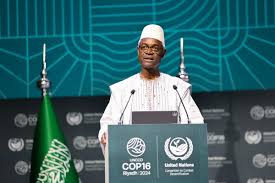
Key financial pledges included the Riyadh Global Drought Resilience Partnership, which mobilized USD 12.15 billion to support 80 vulnerable countries.
The Arab Coordination Group pledged USD 10 billion towards the initiative.
Africa’s Great Green Wall initiative also received EUR 11 million from the Italian government and EUR 3.6 million from Austria for restoration projects in the Sahel region.
The United States and its partners committed nearly USD 70 million to enhance climate-resilient crops and soils under the Vision for Adapted Crops and Soils (VACS) initiative.
The Saudi government announced five new projects worth USD 60 million under its Saudi Green Initiative, including an international sand and dust storm monitoring system.
A Focus on Inclusion
For the first time, COP16 approved the creation of a Caucus for Indigenous Peoples and Local Communities, ensuring their voices are heard in global land restoration efforts.
This followed the presentation of the ‘Sacred Lands’ declaration, which called for the inclusion of Indigenous Peoples in land and drought governance.
Youth participation was also at an all-time high, with the UNCCD Youth Engagement Strategy advancing initiatives led by young people. Meanwhile, gender equity remained a key focus, with countries emphasizing the need to address discrimination against women and girls in policies addressing land degradation and drought.
A new UNCCD report revealed that 77.6% of the Earth’s land has experienced drier conditions since the 1990s, with drylands now covering 40.6% of the planet’s terrestrial surface.
The report, Stepping Back from the Precipice, highlighted how unsustainable land use is pushing planetary boundaries. Agriculture alone accounts for 23% of global greenhouse gas emissions and 80% of deforestation.
Looking Ahead
COP16 marked a turning point for UNCCD, as it set the stage for future collaboration ahead of COP17 in Mongolia in 2026, during the International Year of Rangelands and Pastoralists. Delegates agreed to prioritize the sustainable management of rangelands, which cover half of the Earth’s terrestrial surface but face degradation at alarming rates.
The Riyadh conference also launched the International Drought Resilience Observatory (IDRO) prototype, an AI-driven platform designed to help countries assess their capacity to withstand drought.
UN Deputy Secretary-General Amina J. Mohammed called for continued global commitment, stating: “Our work does not end with the closing of COP16. Youth and Indigenous peoples must be at the heart of these conversations as we craft a sustainable future.”
With over USD 2.6 trillion needed by 2030 to restore degraded land globally, COP16’s outcomes serve as a reminder of the urgency to act decisively against desertification, land degradation, and drought to secure the planet’s future.
By Dare Akogun


